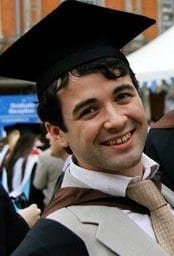Working [in Museums] Wednesdays #1
By Edmund Connolly, on 22 May 2013
Students and aspiring museum workers frequently ask about employment in the arts, so popular is this topic, I have now spoken about this at my old school and universities (to varying levels of success). I am in no way a specialist, nor even a veteran, of this discipline, in fact the only reason I seem to get asked to do these things is because I am one of the most recent employees, thus, in theory, can recant what it was like for me. A few visitng A-level students asked if I had any opinions on the merits of a single vs. a joint honours degree for working in museums; I may as well answer them here.
I have 2 degrees, only the BA is a joint hons. proper (English and Classics) my Masters was multi-disciplinary (Comparative Art and Archaeology), so you can probably guess my opinion on the matter. I like joint honours. Arguably not such a ‘traditional’ degree, but they are a fantastic way to get more for your money (quantitatively speaking) and a unique take on both of the accredited disciplines.
There a few ways I think joint honours can be specifically useful to a museum employee:
Multi-Talented
Every degree comes with a skill set, unique to its students, teaching and institution. I, as an English student, can guess then ending of a Dickens 5 chapters in and use polysyllabic adjectives superfluously. However, Edmund as an archaeologist can also analyse data to within a millimetre of its meaning and will hurl objects at anyone who references unprovenanced material. The point is: you learn different abilities, whether it is essay writing, proof reading, lab work or algebraic cognitive thought, these are skills museums love. Working in a museum one never, ever, ever seems to do one job, for example: I am curating a contemporary art exhibition, co-running cinematic public event programs and arranging the office to have tetris/Ikea level uniformity. Granted, not all these skills will come from you degree, but it’s a good place to start and museums, especially small ones, really appreciate mulch-talented members of staff.
Inter-Disciplinary
At UCL one of our key drives is to motivate inter-disciplinary usage of our museums and collections. This can be in exhibitions, such as Tomb Raiders (now in its second year) which combines contemporary art and our ancient collection, to public events which involve a plethora of different subjects, from script writers(Lucy Blincoe), scent creators (Odette Toilette) and astronomers (Marek Kukula) to anthropologists (Charles Stewart) and architects (Iain Borden). Joint honour degrees, I think, reflect this aspiration for mixed disciplines. No museum is about one topic; so you can tailor your degree to this.
Unique viewpoint
I like it when volunteers apply with a way into an interdisciplinary stream and have a unique take on the collection. This can be via projects like the Student Engagers (PhD students who present the research in a collection setting) or front of house volunteers who provide a different take on our collection. Our volunteers study a range of disciplines, many of them joint honours, which allow them to offer lively and original opinions of the collection for our visitors to absorb.
I am not suggesting joint honours is a ‘better option’ than a single honours degree, but hopefully this rather curt post will offer some food for thought for any University applicants contemplating a career in museums. And, to all of you, good luck with results!
If you are interested in volunteering at the Petrie please click here
Edmund works at the Petrie Museum of Egyptian Archaeology as a Museum Assistant. He graduated from the Institute of Archaeology, UCL, in 2012 and plays sport for UCL almuni and ULU.
 Close
Close




